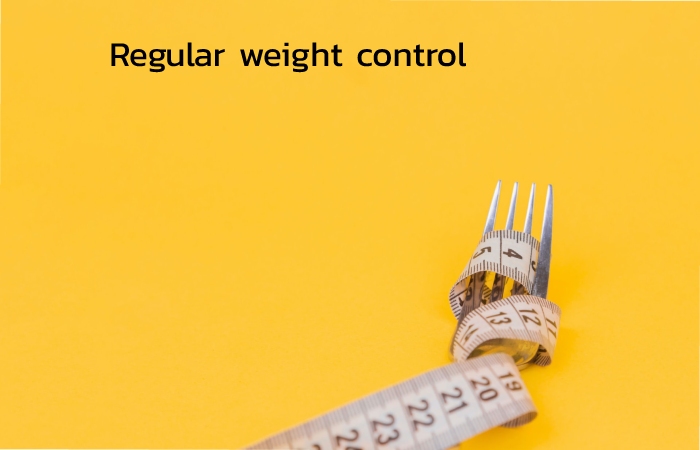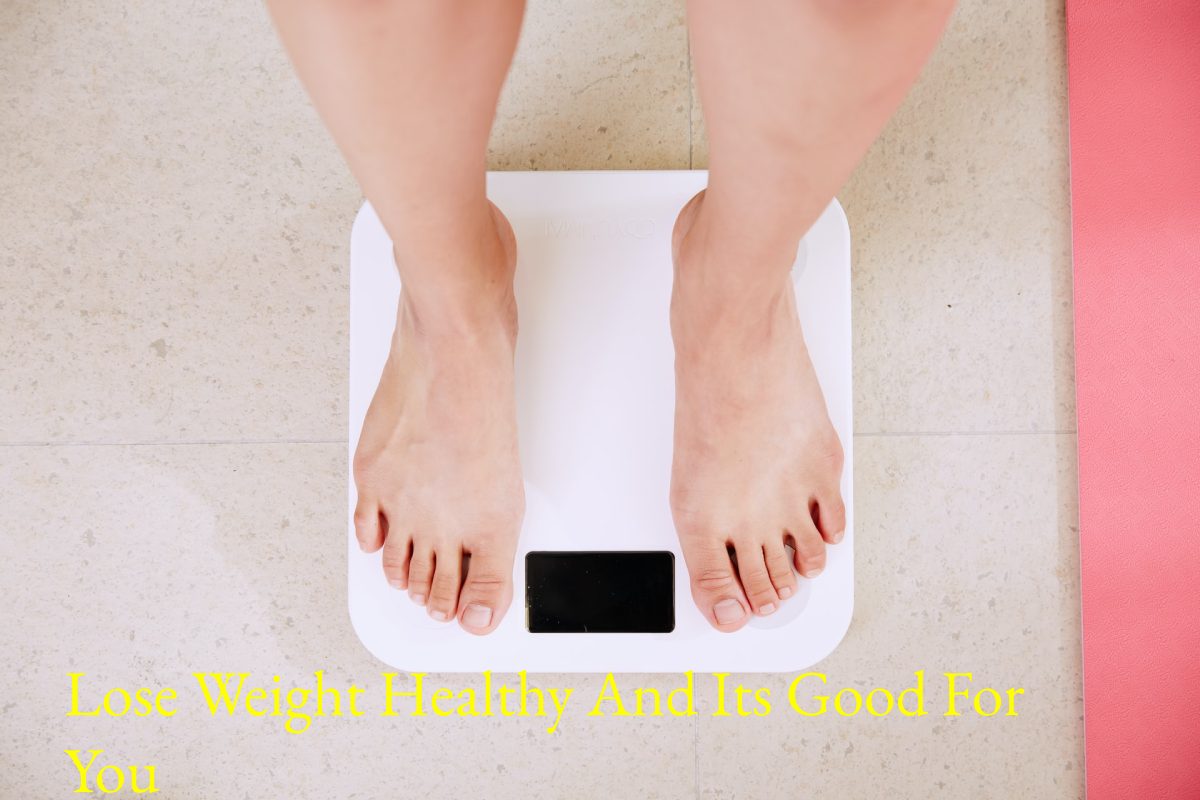Healthy weight loss requires patience and perseverance, and it is significant to adapt your diet and exercise behaviour in the long term. If you want to lose too much weight (lose weight) too quickly, you will most likely not achieve your goal:
A zero diet and a radical training program can reduce body weight in the short term. In order to lose weight permanently and, above all, healthily, you have to give your body more time. Read here what that means in detail!
Table of Contents
Slow transition

In short, the secret to weight loss is quite simple: move more, eat less. However, that doesn’t mean you have to achieve peak athletic performance overnight or embark on drastic weight-loss diets. The opposite happens: give your body enough time to adjust.
For example, if you’re used to eating large meals, a radical diet will starve you — and you’ll likely give it up quickly. The same applies to physical activity: If you haven’t done any sport for years, don’t start with a long run right away, side stitches and shortness of breath will quickly force you to stop.
In any case, it is much healthier and more promising to take it slow – with a balanced diet that does not make your stomach growl and an individual training plan that does not over-or under-challenge you.
Movement as the key to success
Short walks and other forms of moderate exercise also help reduce weight in the long term. Plus, for those who don’t exercise, they’re easier to implement than a sweaty workout at the gym. However, the benefit of moderate exercise only comes if you repeat it regularly.
For example, if you walk two to three kilometres more than usual every day, you can lose weight despite the same diet. More tips for moderate activity that can also be easily integrated into everyday life:
- Use the stairs instead of an elevator.
- Get off one stop early and walk the rest.
- Use TV commercial breaks to get you up. Get outside and get some fresh air.
- If you have a dog, take it for a walk often.
- Bike short distances instead of driving.
Of course, it is even more effective if you exercise regularly. Choose a sport you like – then regular training will be more accessible. It also makes it intelligent to seek advice from a specialist (e.g., fitness trainer, sports doctor).
On the intensity and frequency of training (individual training plan). This is especially true for sports beginners who want to lose weight – a check-up with the doctor before starting exercise is advisable!
Eat less and healthier
If you reduce your calorie intake in the long term, you will achieve better long-term weight loss results than a radical diet. Try to eat a healthy and stable diet. Instead, eat fewer high-fat foods and more vegetables. With its many antioxidants and other health-promoting ingredients, fruit is also a valuable part of a healthy diet. The German Society for Nutrition (DGE) recommends eating at least 400 grams of vegetables and 250 grams of fruit every day.
However, fruits also contain a lot of fructose – the riper they are, the richer they are. Experts say the form of sugar, called fructose, is easily converted to fat and stored by the body if not burned. Suppose you want to lose weight healthily.
It will help if you avoid large amounts of (sweetened) fruit. You also consume to be careful with fruit juices, especially smoothies: They contain a lot of fruit and therefore a lot of sugar, so they are not “light” delicacies.
I prefer water or mineral water (fruit juice, lemonade, cola, etc.) when it comes to drinks anyway.
Other small but practical tips:
- Always eat a bite more diminutive than usual.
- Settle for one serving at dinner.
- Halve the consumption of sweets.
- Avoid potato chips, salad dressing, alcohol, and high-calorie snacks.
An old formula for losing weight is “FH,” which means “eat half.” Better yet, it should read, “Eat half the fat and the sugar.” Because that is the main problem for most overweight people: They eat too many fatty and sugary foods.
The same applies to fats: I prefer fats that contain many unsaturated fatty acids, such as olive oil, rapeseed oil, or nuts. Oily sea fish such as herring and mackerel, rich in heart-healthy omega-3 fatty acids, are also precious.
However, don’t be too strict with dietary restrictions. Treat yourself to something good in between. These delicacies usually taste even better because they are not always “allowed.”
Regular weight control

Track your weight loss. This gives you an exact picture of your development and motivates you anew every day. But don’t step on the scale every day! Once or twice a week is enough.
Patience and perseverance
Visible weight loss takes time. You will notice the first results after about two weeks, and the success only becomes visible after a month. Under no circumstances should you type the mistake of falling back into old eating habits. Be persistent in losing weight.
There is a small reward after every pound lost for extra motivation to lose weight. For example, treat yourself to a visit to the cinema, a long bath or a new CD. Share the great success with your friends. Your support and admiration will be your motivation.
Please make no mistake after it comes to losing weight. If you have definite to lose weight, you must essentially do without sweets and other goodies. Don’t be dogmatic about anything, and try to enjoy tasty but unhealthy things in smaller amounts.
Don’t be unhappy if you don’t lose weight as fast as you would like. Slowly but surely is the motto! Remember that the longer you persevere, the better the results. Every time you exercise more than usual, you burn calories and fat. Remember that there is no other and faster way to lose weight healthily and meaningfully.
It’s about your health
Studies have shown that losing several pounds can significantly reduce your risk of developing diabetes and heart disease. So, losing excess pounds not only benefits your looks but your health as well.
It is normal to improve weight as you get older, and a few pounds spread over several years is not a health problem. However, if your body form index (BMI) is 25 or more, it is advisable to start thinking about losing weight and to take weight loss measures. BMI is calculated by dividing your mass by the square of your height (weight/height²). Every day is a value between 18.5 and 24.9, and from a discount of 25, doctors speak of overweight.

